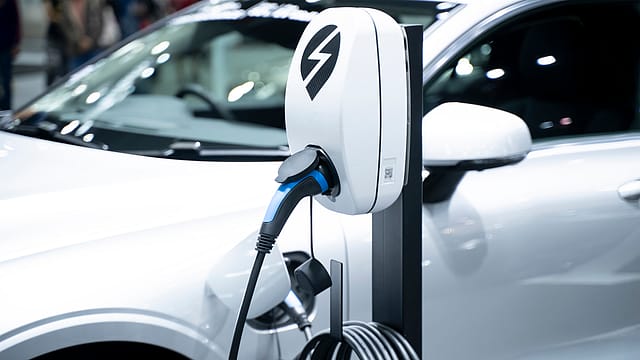Tata to build ₹13,000 cr lithium-ion gigafactory in Gujarat
ADVERTISEMENT

Tata Group plans to establish a lithium-ion cell manufacturing unit in Gujarat. A Tata Group subsidiary signed a Memorandum of Understanding (MoU) with the Gujarat government on Friday.
The proposed gigafactory will be set up with an initial investment of around ₹13,000 crore and will have a production capacity of 20-gigawatt hours, Gujarat Chief Minister Bhupendra Patel tweeted.
The plant is expected to create various direct and indirect employment opportunities, he said.
The battery manufacturing unit is expected to aid India's burgeoning electric vehicle (EV) industry. "While the state government is committed to a vision of reducing carbon emissions by increasing the production of electric vehicles, the reliance on lithium-ion batteries has significantly increased along with EV usage," the Gujarat CM said.
Tata Group-owned Tata Motors on Thursday reported a 66% year-on-year jump in electric vehicle sales in May. The automaker sold 5,805 units last month compared with 3,505 units in May 2022.
However, Tata Motors' total sales fell 1.6% to 74,973 units in May as against 76,210 units in the year-ago period. The company's total domestic sales declined 2% to 73,448 units in May.
In FY23, Tata Motors crossed the significant landmark of 50,000 annual sales in EVs, its highest ever, to post a growth of 154% over FY22.
According to Moody's, Tata Motors retains an early mover advantage in the battery electric vehicles (BEV) market in India, with an 85% share for the period April through December 2022. Presence through 250 dealers across 165 cities, and with close to 4,300 charging points, has already allowed the company to sell some 50,000 EVs, Moody’s said.
Tata plans to increase its EV line-up from four models to 10, by March 2026. The carmaker's EV business already raised $1 billion from private equity investor TPG.
Net profit of the automaker stood at ₹5,408 crore for the January-March quarter compared with a loss of ₹1,032 crore in the corresponding period last year. Tata Motors had clocked a net profit of ₹2,957.71 crore for the quarter ended December. Revenue from operations jumped 35% year-on-year to ₹ 1.05 lakh crore as against ₹78,439 crore in the year-ago period.
This comes months after the Geological Survey of India (GSI) earlier this year discovered 5.9 million tonnes of lithium deposits in the Salal region of Reasi in Jammu & Kashmir. The unavailability of lithium in the country has been one of the reasons why India has been dependent on other countries for lithium-ion batteries.